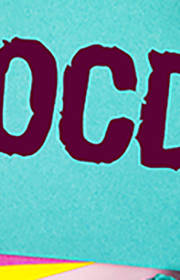
Obsessive compulsive disorder
21 Jul 2020An individual suffering from OCD may have repetitive thoughts, impulses or images which are intrusive and cause anxiety and result in certain repetitive behaviors to reduce the anxiety called as compulsions.
Commonly experienced themes are
1.fear of contamination and need to wash/clean excessively
2.Doubts related to activities done and need to repeatedly check
3.Inapropriate thoughts related to religion/others causing distress
4.Need to arrange things repeatedly and in a certain manner
5.Inappropriate repetitive images causing anxiety and distress
6.Recurrent thoughts or urge of doing something inappropriate that one does not want to do
There could also be other symptoms that needs to be discussed
“I suffer from OCD since may years and have not gotten better. What are my treatment options”?
It is important to evaluated in detail and see if it is only OCD or is there any other associated co morbidity. A detailed review of treatment so far will need to be done to assess reason for not having had adequate recovery. Medications and Cognitive behavioral therapy are mainstays of treatment and these need to be discussed
“Do I need to be admitted for OCD related treatment”?
OCD is usually treated on an outpatient. At times however, if there are severe symptoms, associated depression being severe admission may need to be considered. In individuals with Severe OCD admission may be considered to initiate Intensive behavioral therapy and subsequently it can be continued on an outpatient basis
“I have tried to explain to my son not to wash so many times. Despite my efforts why does he not listen”?
It is important to understand that by merely advising against indulging in “compulsive washing”, it may not be possible for the individual to control OCD. Like by merely telling an individual to stop developing fever, he/she cannot stop, so also with OCD. It is a medical condition needing treatment with which can be dealt with in an effective manner.
